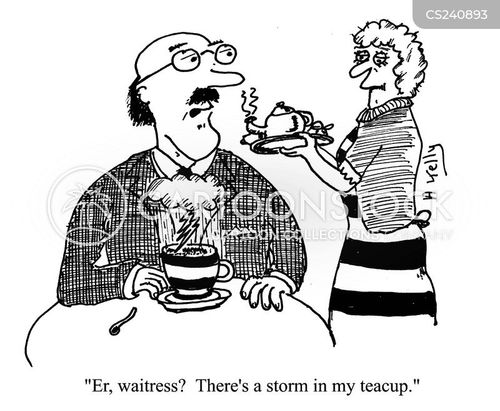

“Grab the tea towel and help me with the dishes.” It is, in fact, a small cloth you use in the kitchen to dry plates, wipe up spills, or perhaps dry your hands. Tea towelĪ tea towel is another thing which has nothing to do with the drink tea or the mealtime.

Either way, in a hot situation they would both melt, meaning they are unsuitable for the intended job. There are other variations such as ‘As helpful as a chocolate teapot’ and ‘As useful as a chocolate teapot’.Īnother slight alternative to this saying is using the word ‘fireguard’ instead of teapot. It was about about as good as a chocolate teapot.” It would make no sense to have a teapot made out of chocolate, but that is exactly the point of this tea idiom! To say it’s as good as a chocolate teapot is implying that something or someone is useless. This expression can be taken literally to refer to a cup of tea that hasn’t been left to brew for long enough and is, therefore, quite weak in taste. “Everyone at the press conference found the announcement rather weak tea after all the buildup.” Weak tea is a slang term for something that is disappointing, feeble, unconvincing or unimpressive. “Please come downstairs now, it’s tea time.”Ĭheck out some more British idioms so you don’t get confused with trans-continental conversations. This expression is mainly used in British English and should not be confused with the drink tea or even with afternoon tea (which is a light meal of specially prepared sandwiches and cakes served with tea to drink). Tea time, in this case, means it is time for the evening meal (served around 5 or 6 o’clock). This is another popular tea-related phrase which may be confusing. There are plenty of other English idioms to describe the future. I guess it depends on what the tea leaves say.” “I honestly don’t know what I’m going to do. Some people believe you can tell what the future holds for someone by looking at the patterns the leaves form after you drink tea. Not to be confused with the above, this tea idiom, what the tea leaves say, is used when discussing future unknown events. “Who keeps taking all the pens? I think we have a tea leaf in this office!”Ĭockney rhyming slang is almost a language in its own right. This is because the word ‘leaf’ in tea leaf rhymes with ‘thief’.

It comes from cockney rhyming slang and means ‘thief’. This tea expression is something you might hear from British people, especially Londoners. You can find some more food-related idioms here. “Ooh you baked a lemon cake! Lovely, just my cup of tea. This idiom can be used in the affirmative too, but this is less common. They just aren’t my cup of tea.” “Beverley loves Korean food but it’s not my cup of tea.” If you just don’t like something or someone, try this tea-related expression: not my cup of tea. “I’m simply not doing the job, not even for all the tea in China!” Not my cup of tea People drink a lot of tea in China, so to say you wouldn’t do something for all the tea in China means you would never do it, no matter the amount of money on offer. Tea idioms come in all shapes and sizes and this phrase basically means a large amount of something valuable, like money. This one appears on our list of weather idioms, too. It was all a bit of a storm in a teacup if you ask me.” “I really don’t know why he got so upset. Well, coming back to Anjala (starring Vimal) one waits with bated breath to see whether the storm in the teacup will die down.If there is great fuss, outrange or commotion about something that is small or insignificant, it could be described as a storm in a teacup. ( The Korea Joongang Daily)ĮASA panic storm in a teacup ( The Bangkok Post)īut unfortunately that’s not where it stops and the millions lost on the stock market are inconsequential when compared to how this will affect the lives of every South African. “The so-called ‘Ahn wind’ is more than a tempest in a teapot,” said Lee Taek-soo, head of Realmeter. ( USA Today)ĭrinking my morning coffee and skipping around on Twitter recently I came across an interesting little tempest in a teapot involving Glenn Thrush, Politico’s chief political correspondent.

There have been some hiccups along the way: The $6 billion in losses racked up by the “London whale” - a U.K.-based trader in the bank’s Chief Investment Office - in 2012 raised genuine concerns about even Dimon’s ability to manage an organization of JPMorgan’s complexity (his early qualification of the problem as “a tempest in a teapot” came back to haunt him).


 0 kommentar(er)
0 kommentar(er)
